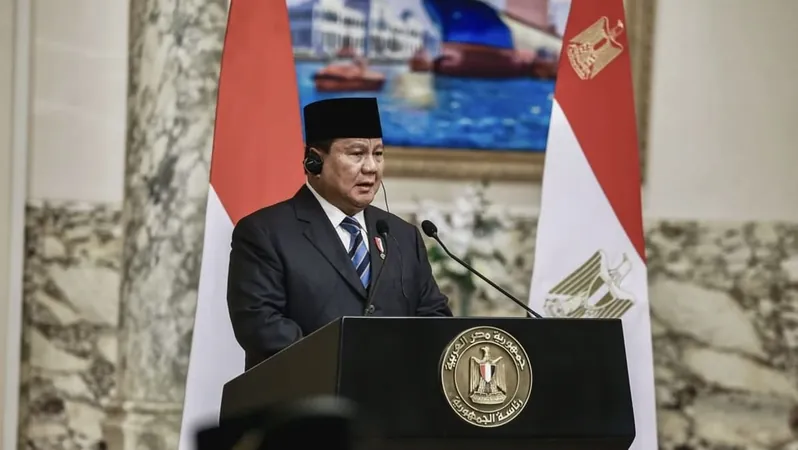
Shocking New Strategy in Indonesia: Graft Convicts May Get Pardons If They Return Stolen Assets!
2024-12-23
Author: Wei Ling
JAKARTA: A Bold Move Against Corruption
In a bold move aimed at tackling the persistent corruption that has plagued Indonesia for decades, the government is planning to offer pardons to individuals convicted of graft—providing they return stolen assets to the state. Chief Legal Affairs Minister Yusril Ihza Mahendra describes this initiative as "a new approach" highlighting the need for innovative solutions to an enduring problem.
"We want to benefit the people by ensuring that stolen money finds its way back to state coffers," Minister Yusril stated during an interview with television network BTV. "Imprisoning graft convicts without recovering the assets is not serving the people at all."
Presidential Endorsement
This initiative was initially proposed by President Prabowo Subianto during his recent visit to Egypt, where he urged corrupt individuals to return what they have taken from the public. "I am giving them the opportunity to repent. If you return what you stole, we might forgive you," President Prabowo said at a speech attended by hundreds of Indonesian students.
Drafting of the Presidential Decree
The government is currently drafting a presidential decree to formally implement this program, which is said to include a strict deadline for asset recovery. "Graft convicts would need to return the stolen assets by August 1, 2025, to qualify for a pardon," Yusril revealed. He emphasized that this measure is also intended to alleviate the country's prison overcrowding, with Prabowo recently announcing plans to grant amnesty to around 30% of the nation's prison population.
Criticism of the Initiative
However, this proposal has sparked fierce criticism from various quarters. Critics warn that this approach might undermine the fight against corruption rather than bolster it. Former Coordinating Minister for Political, Legal, and Security Affairs Mahfud MD expressed concerns that without stringent mechanisms for verifying returned assets, the initiative could weaken the principles of transparency and accountability in governance.
Adding to the controversy, anti-corruption researcher Zaenur Rohman pointed out that while the intention behind the pardon may be well-meaning, it contradicts existing anti-corruption laws which assert that the return of stolen assets does not negate the crime itself. Rohman recommends the adoption of deferred prosecution agreements that could incentivize corrupt individuals to compensate for their wrongdoing while still allowing for legal accountability.
Corruption Perceptions Index
According to the 2023 Corruption Perceptions Index published by Transparency International, Indonesia ranks 115th out of 180 countries, with a worrying score of just 34 out of 100—a significant drop from earlier years. This declining ranking underscores the urgency for practical solutions in combating corruption effectively.
Conclusion: A Controversial Turning Point?
As Indonesia navigates this controversial new approach, the nation watches closely. Will this strategy prove to be a turning point in the country’s battle against corruption, or will it ultimately erode the very integrity it seeks to uphold? Only time will tell.




 Brasil (PT)
Brasil (PT)
 Canada (EN)
Canada (EN)
 Chile (ES)
Chile (ES)
 Česko (CS)
Česko (CS)
 대한민국 (KO)
대한민국 (KO)
 España (ES)
España (ES)
 France (FR)
France (FR)
 Hong Kong (EN)
Hong Kong (EN)
 Italia (IT)
Italia (IT)
 日本 (JA)
日本 (JA)
 Magyarország (HU)
Magyarország (HU)
 Norge (NO)
Norge (NO)
 Polska (PL)
Polska (PL)
 Schweiz (DE)
Schweiz (DE)
 Singapore (EN)
Singapore (EN)
 Sverige (SV)
Sverige (SV)
 Suomi (FI)
Suomi (FI)
 Türkiye (TR)
Türkiye (TR)
 الإمارات العربية المتحدة (AR)
الإمارات العربية المتحدة (AR)